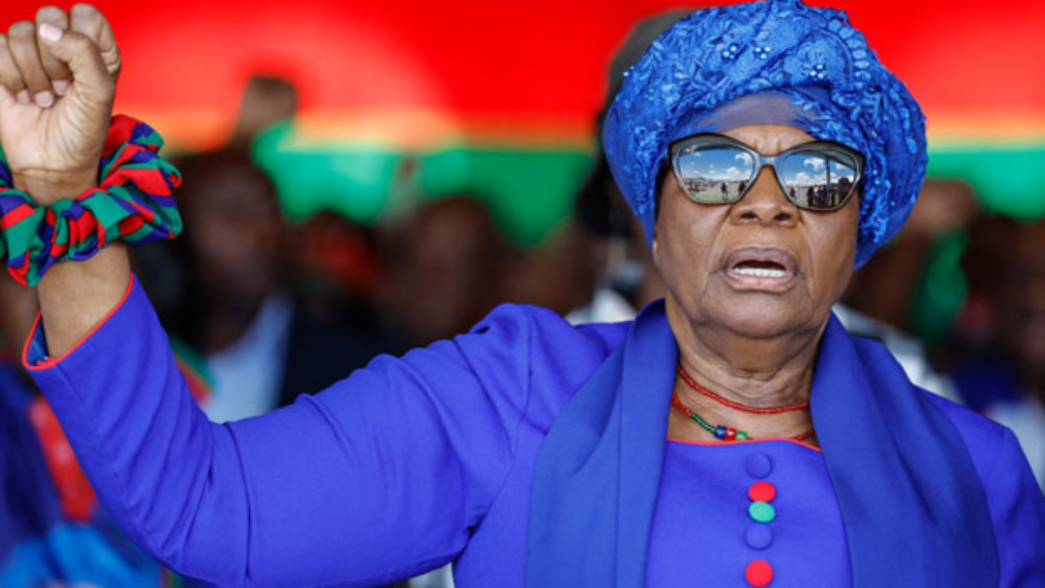In a landmark moment for Namibian politics, Vice-President Netumbo Nandi-Ndaitwah has been declared the country’s first woman president, winning 57 percent of the vote in an election marked by controversy and opposition resistance.
The 72-year-old veteran politician’s victory represents more than just a personal triumph—it symbolizes a turning point for SWAPO, the liberation party that has governed Namibia since independence in 1990. Her election comes at a point when the party’s traditional support base is being challenged by younger generations increasingly concerned with economic realities rather than historical liberation narratives.
The November 27 election was fraught with logistical nightmares that threatened the democratic process. Voters encountered extraordinary obstacles, including ballot paper shortages that extended voting until November 30 and created lines where some citizens waited up to 12 hours to cast their ballots. These complications were not merely inconvenient—they became a central point of contention for the opposition.
The Independent Patriots for Change (IPC), which positioned its candidate Panduleni Itula as Nandi-Ndaitwah’s primary challenger, immediately contested the election’s legitimacy. Itula pointedly declared there were a “multitude of irregularities” and that his party would not recognize the election results, promising to pursue nullification through established electoral processes.
The Electoral Commission of Namibia (ECN) acknowledged organizational failures, including ballot paper shortages and technical issues with electronic voter registration tablets. Despite these challenges, nearly 77 percent of the country’s 1.5 million registered voters participated in the presidential election—a testament to citizens’ democratic commitment.
Beyond the presidential race, SWAPO maintained its parliamentary dominance, securing 51 national assembly seats compared to the IPC’s 20—though this represents a notable decline from their previous 63-seat stronghold. This reduction reflects growing discontent, particularly among young Namibians who are experiencing the harsh realities of economic marginalization.
The unemployment statistics paint a stark picture of the challenges facing the nation. Among 15- to 34-year-olds, unemployment is estimated at a staggering 46 percent—nearly triple the national average. This economic pressure creates a potent backdrop for political transformation, with younger voters increasingly questioning the performance of liberation-era political establishments.
Nandi-Ndaitwah, known by her initials NNN, emerges as a fascinating political figure. A conservative daughter of an Anglican pastor, she has cultivated an image of seasoned wisdom during her campaign. Her election promises focus on economic revival, with a commitment to “create jobs by attracting investments using economic diplomacy.”
Her victory is particularly significant in a regional context where liberation movements are facing unprecedented challenges. Neighboring Botswana recently ousted its long-standing Democratic Party after almost six decades in power, signaling a potential continental shift in political dynamics.
As a major uranium and diamond exporter, Namibia possesses significant economic potential. However, the persistent challenge has been translating mineral wealth into tangible improvements for the population. Nandi-Ndaitwah’s presidency will be judged not by historical symbolism but by her ability to address these fundamental economic disparities.

Leave a Reply